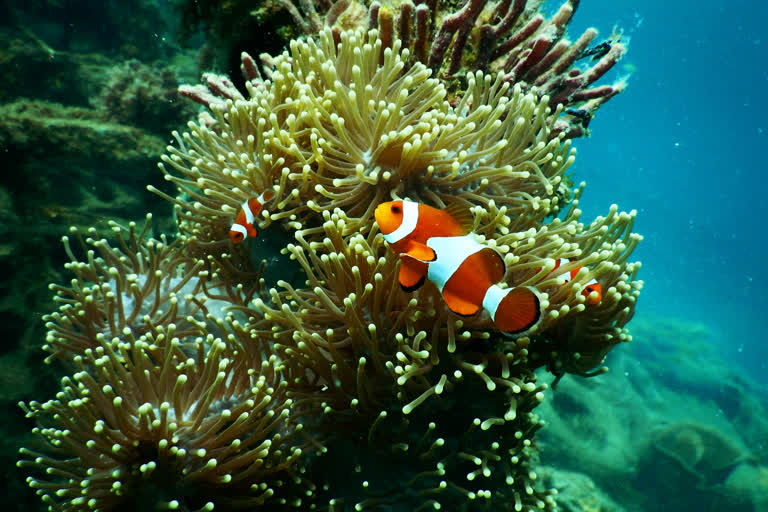Rome: The Gulf of Naples deserted a result of Italy's long lockdown to prevent the spread of COVID-19.
Marco Lupo, director-general of the Lazio region's environmental agency, says preliminary results of a nationwide environment ministry-mandated lockdown survey indicate an over 30 per cent reduction in nitrogen and phosphorous pollutants found in sewage and livestock waste in the region's coastal seas, compared to the last two years.
He believes the elimination of tourism, after Italy ordered everyone home on March 10, reduced the number of visitors to the region, thus reducing sewage production from some of the 30 million tourists who normally visit the capital each year.
The lockdown also meant Italians couldn't flock to their seaside vacation homes as they normally would in spring a phenomenon that typically overwhelms local water treatment plants and results in increased pollutants spewing into the sea.
"This year, the coastal towns have been much less populated, compared with the same months of the past years, decreasing the anthropic burden," says Lupo.
"We know that in these areas the wastewater management plants cannot keep up with the massive influx of people during the summer."
Scientists have already documented ecological changes around the world as a result of COVID-19 lockdowns, with humanity being kept indoors and industrial production in many countries grinding to a halt.
Read more: Aus zookeeper mauled by lions, critical
Air pollution is down in some of the world's most choked cities and wildlife, such as coyotes and boars, have been seen in cities.
Off Italy's coasts, which are popular, pristine but occasionally polluted, such visible effects of the lockdown are everywhere.
With the usually busy Gulf of Naples cleared of cargo, cruise and pleasure boats, dolphins, usually only visible far out in the Mediterranean, now flock close to shore.
Fishermen are pulling in bigger hauls than usual. Jellyfish have been spotted in the empty canals of Venice.
To seize the unique moment the lockdown offered, Italy's environment minister Sergio Costa on April 15 tasked the coast guard and other law enforcement agencies to work with regional environmental authorities to take water samples, monitor and assess sea changes in the seas off Italy's 8,000 kilometres of coastline.
Costa noted the COVID emergency, while tragic given the loss of life from the virus, offered an unprecedented opportunity to "photograph" Italy's seas.
The results will offer the country away to reboot industrial production sustainably and create a new normal.
Coast guard Admiral Vincenzo Leone, in charge of the Lazio region, says it was appropriate to seize the moment to understand whether the visible effects of elimination of tourism and boating had a real effect on water quality.
Also read: Japan aerobatics team show support for key workers
"The sea said something, we have listened to it and we are checking," he says.
"Because images, both from the surface and from underwater, can be not fully explanatory. In this way, we will be able to have a complete analysis of what happened in the sea during this period."
For fishermen off Rome's main industrial port at Civitavecchia, the lockdown has been accompanied by an increase in fishing hauls, which are highly regulated to prevent overfishing.
In April, for example, fishermen pulled in 60,000 kilograms of fish, compared to 52,000 kilograms last year.
Roberto Arciprete, the marine biologist with Civitavecchia's local fishing cooperative, believes the absence or reduction of maritime traffic cruise ships, ferries, pleasure boats and even illegal poaching vessels resulted in more fish closer to shore. "These factors allow the nurseries to be undisturbed," he says.
Admiral Leone says the results of the sea surveys will be published by the environment ministry and will help guide future policy. "There is only one sea and we must protect. So, when the sea talks to us, we must listen to it," he says.
Also read: Quick change artists: Theatre stage builders to desk makers for home workers
(With inputs from AP)



